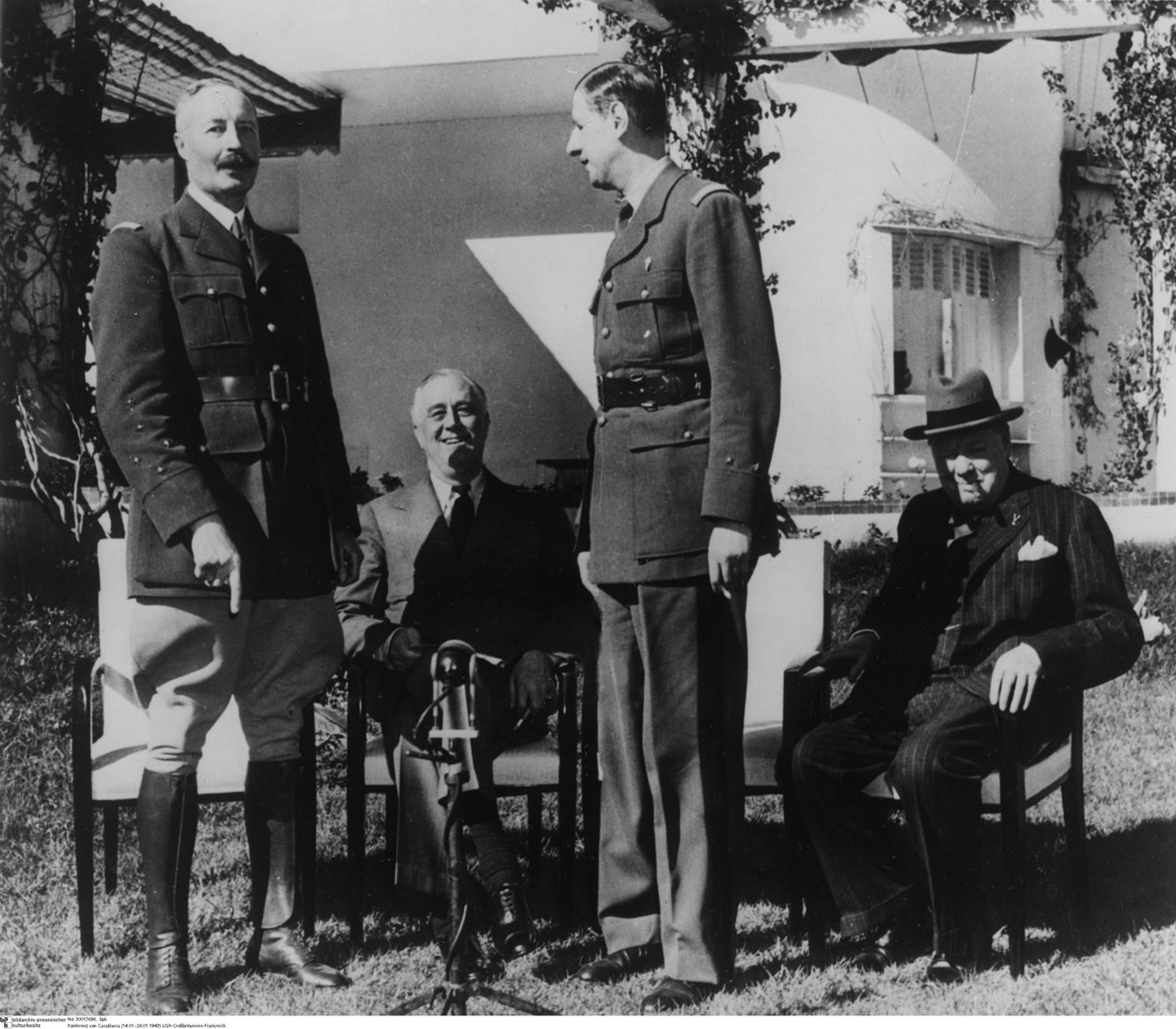Abstract
Joseph Stalin explained his absence at the Allied war conference in
Casablanca in early 1943 by saying that he was “unavailable” because of
the fighting around Stalingrad. In actuality, however, his absence
reflected his distrust of the Western Allies and his doubts about
whether they had the political will to open a second front against
Germany. During the discussions between Franklin Delano Roosevelt
(sitting, at left) and Winston Churchill (sitting, at right), France was
represented by two men, General Honoré Giraud (standing, at left), who
had escaped from a German POW camp, and General Charles de Gaulle
(standing, at right), the leader of Free France, who had fled to
England. Giraud was favored by the Americans, who greatly overestimated
his influence and underestimated de Gaulle’s popularity. The British, on
the other hand, supported de Gaulle, despite all their issues with him.
The apparent agreement between Giraud and de Gaulle, which was made
under American pressure – Roosevelt described it as a “shotgun marriage”
– led to the formation of the Committee for French National Liberation
[Comité Français de la Libération
Nationale] in early 1943. De Gaulle quickly gained political
dominance in the committee and was able to make Giraud
insignificant.
